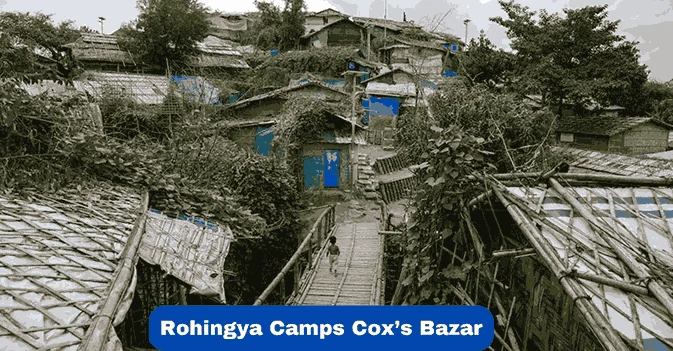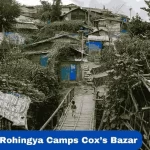In the crowded refugee camps of Cox’s Bazar, Bangladesh, thousands of Rohingya refugees are being recruited to join the ongoing civil war in Myanmar. The Rohingya, a predominantly Muslim group, fled Myanmar in 2017 to escape what the United Nations called a genocide carried out by Myanmar’s military. Now, many of them are being lured back into the country to fight in the conflict.
Why Are Rohingya Joining the Fight?
Many Rohingya refugees, like 32-year-old Rafiq, are frustrated with their dire living conditions in the camps. Poverty, overcrowding, and violence have left them disillusioned and desperate. Rafiq, who fled to Bangladesh in 2017, recently returned to Myanmar to fight after being recruited by armed groups. He said, “We need to fight to take back our lands. There is no other way.”
- Living Conditions in Camps:
- Over 1 million Rohingya live in makeshift shelters with limited access to resources.
- Lack of educational and economic opportunities drives many to consider extreme options.
- Motivation for Fighting:
- Some hope to reclaim their homeland.
- Others are tempted by promises of money and citizenship from the Myanmar military.
Myanmar Junta’s Role in Recruitment
The Myanmar military junta, which staged a coup in 2021, has intensified its fight against the ethnic Arakan Army in Rakhine State. To gain an advantage, the junta has offered incentives to Rohingya fighters, including:
- Promises of Citizenship:
- Citizenship, long denied to the Rohingya, is being used as a bargaining chip.
- Financial Rewards:
- Cash payments to those willing to fight alongside the military.
The Rise of Armed Groups in Refugee Camps
Violence and militant activity have surged in the Cox’s Bazar camps. According to aid agency reports, between 3,000 and 5,000 Rohingya refugees have joined armed groups this year.
- Failed Peace Talks:
- Negotiations between the Rohingya and the Arakan Army to avoid conflict have failed.
- Internal Violence:
- Recruitment drives have increased tensions within the camps, leading to clashes and instability.
Bangladesh’s Involvement and Challenges
Some Bangladeshi officials are reportedly supporting the Rohingya insurgency. This has complicated the already strained relations between Bangladesh and Myanmar.
- Bangladesh’s Position:
- Officials claim to back the Rohingya struggle for justice but face criticism for not addressing militant activity in the camps.
- Security Concerns:
- The rise of armed groups poses a security risk for both Bangladesh and the broader region.
The Global Impact of the Rohingya Crisis
The Rohingya crisis has become a symbol of global neglect. Despite international attention, conditions in the camps remain dire, and the root causes of the conflict in Myanmar are unresolved.
- International Response:
- The United Nations and human rights organizations have called for greater intervention, but progress has been slow.
- Humanitarian Needs:
- More aid is required to improve living conditions and prevent further radicalization in the camps.
A Crisis at a Crossroads
The recruitment of Rohingya refugees to fight in Myanmar highlights the desperation and complexity of their situation. Without immediate intervention, the cycle of violence and displacement will continue. Addressing the root causes, providing better conditions in the camps, and ensuring justice for the Rohingya are crucial steps toward resolving this crisis.































